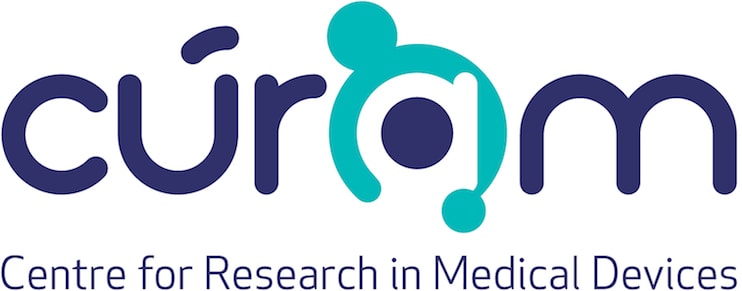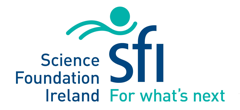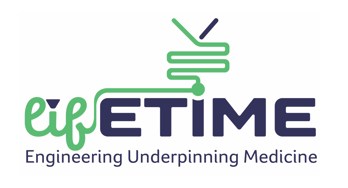-
The Steering Group act as the governance to the CDT. The group consists of world class research leaders who will provide feedback and guidance to refine the CDT processes and drive forward change when needed.
Dr Annette Bramley (Committee Chair)
N8 Research Partnership
Dr Annette Bramley is the Director of N8 Research Partnership. She is a highly motivated and experienced executive leader skilled in orchestrating strategy and excellence for research in complex organisations. She partners with the leadership of the top research universities in the North of England, coordinating funding for research and education programme grants across a wide range of disciplines based on excellence and adding value. She also has an extensive history of delivering results in roles with the Engineering and Physical Sciences Research Council (EPSRC), particularly in the area of Healthcare Technologies.Rhys Macown
Cell and Gene Therapy Catapult
Rhys is Lead Technical Scientist at the Cell and Gene Therapy Catapult where he works to grow the UK cell and gene therapy industry by developing low risk, cost efficient, and scalable processes for the production of a range of cell and gene therapies.Prof Andres Garcia FBSE
Georgia Tech
Prof Andres Garcia is the Executive Director at Parker H. Petit Institute for Bioengineering and Bioscience at Georgia Institute of Technology. His research program centers on integrating innovative engineering, materials science, and cell biology concepts and technologies to generate (i) novel insights into the regulation of adhesive forces and mechanotransduction, and (ii) biofunctional materials (hydrogels, coatings, nanoparticles) for protein/cell delivery and tissue repair. This cross-disciplinary effort has resulted in new biomaterial platforms that elicit targeted cellular responses and tissue repair in various biomedical applications (bone repair, therapeutic vascularization, pancreatic islet delivery, and infection), innovative technologies to study and exploit cell adhesive interactions, and new mechanistic insights into the interplay of mechanics and cell biology.Prof Molly Stevens FREng FRS
Imperial College
Molly Stevens is Professor of Biomedical Materials and Regenerative Medicine and the Research Director for Biomedical Material Sciences in the Department of Materials, Department of Bioengineering and the Institute of Biomedical Engineering at Imperial College London. Molly leads a large and extremely multidisciplinary research group of students and postdocs/fellows. The group is focused on both high quality fundamental science and translation for human health. Research in regenerative medicine within her group includes the directed differentiation of stem cells, the design of novel bioactive scaffolds and new approaches towards tissue regeneration. She has developed novel approaches to tissue engineering that are likely to prove very powerful in the engineering of large quantities of human mature bone for autologous transplantation as well as other vital organs such as liver and pancreas, which have proven elusive with other approaches.Dr Marija Zacharova
EPSRC
Marija is the Portfolio Manager for the Synthetic Biology and Biomaterials & Tissue Engineering Research Areas at EPSRC. She joined EPSRC after 5 years of postdoctoral research in various aspects of Synthetic and Medicinal Chemistry. She is passionate about innovation driven by interdisciplinary research at the interface of biomedical sciences and other disciplines such as engineering, as well as implementing 3Rs (reduction, refinement, replacement of animals) in research.Dr Paul Roach
Loughborough University
Dr Paul Roach is a Reader in Biomaterials and Interface Science at Loughborough University. His research interests build upon his interdisciplinary background spanning synthetic organic chemistry, materials science, experimental physics and instrumentation, and biological response to surface cues.Jonathan Campbell
LGC Group
Jonathan obtained his PhD from the IRC in Biomedical Materials at Queen Mary University of London investigating the role of mechanics in controlling MSC osteo-chondral differentiation pathways, before taking up post-doctoral positions at both QMUL and Cambridge, optimising biomaterial scaffolds for tissue development and disease modelling applications. In his current role at the National Measurement Laboratory hosted at LGC, he has responsibility for delivering cell measurement research projects and bespoke projects for a range of academic, industry and government stakeholders, as well as inputting more widely to the strategic objectives of the NML. He is active on several UK and international standardisation committees including CEN and ISO, and also a current working group Chair within the Consultative Committee for amount of substance (BIPM, Sevres Cedex, France).Dr Jonathan Best
Cell Guidance Systems
Dr. Jonathan Best is the Research Director at Cell Guidance Systems, a biotech company which develops protein delivery systems for use in research and therapeutics for diseases with unmet needs. He has over 25 years of experience across academia, industry and research funding. 12 years of industry research experience, with successful research roles in a major pharmaceutical company as well as small and start-up biotechs and 7 years within the biomedical research funding sector. This has given him a deep understanding of the commercial and strategic requirements of the biomedical industry, funding sector and academia. He has also successfully managed drug discovery research projects, industrial-academic collaboration and research programmes for strategic decision-making for research funding allocation.Prof Jennifer Hiscock
University of Kent
Jennifer Hiscock is currently Professor of Supramolecular Chemistry at the University of Kent. She obtained her PhD from the University of Southampton (UK) under the supervision of Prof. Philip A. Gale in 2010 studying supramolecular host:guest chemistry. She continued her post-doctoral research between this group and Dstl (Porton Down - UK) until 2015 when she moved to the University of Kent (UK) as the Caldin research fellow. In 2016 she was awarded a permanent lectureship position at that same institution, which has since been followed by her promotion to Reader in Supramolecular Chemistry and Director of Innovation and Enterprise for the School of Physical Sciences in 2019. In 2020 she was awarded a UKRI Future Leaders Fellowship, developing novel cell surface active therapeutics and drug adjuvants, which was followed promotion to full Professor in 2022. Her research currently focuses on an interdisciplinary approach to applying supramolecular chemistry to solve real-world problems through the development and application of her patented Supramolecular Self-associating Amphiphile technology. In addition, she is the founding member and chair of the international Women in Supramolecular Chemistry (WISC) network and committee member for both the Royal Society of Chemistry’s (RSC’s) Macrocyclic and Supramolecular Chemistry (MASC) and virtual MASC interest groups.Neeti Viswanathan
Zimmer Peacock
Neeti Viswanathan is the Head of Operations at Zimmer and Peacock Ltd. and owing to her scientific background she also functions as a project manager on multiple IVD-based projects at ZP. She has been with the company for over 2 years. Neeti has a Master’s degree in Drug Discovery from UCL School of Pharmacy, London UK and her first degree is in Pharmaceutical Sciences. Before working at ZP, Ms. Viswanathan had 7 years of experience working as a Scientist, of which 5 were in medical device development. Neeti also has extensive knowledge on ISO-13485-related documentation which is a vital part of IVD development.








